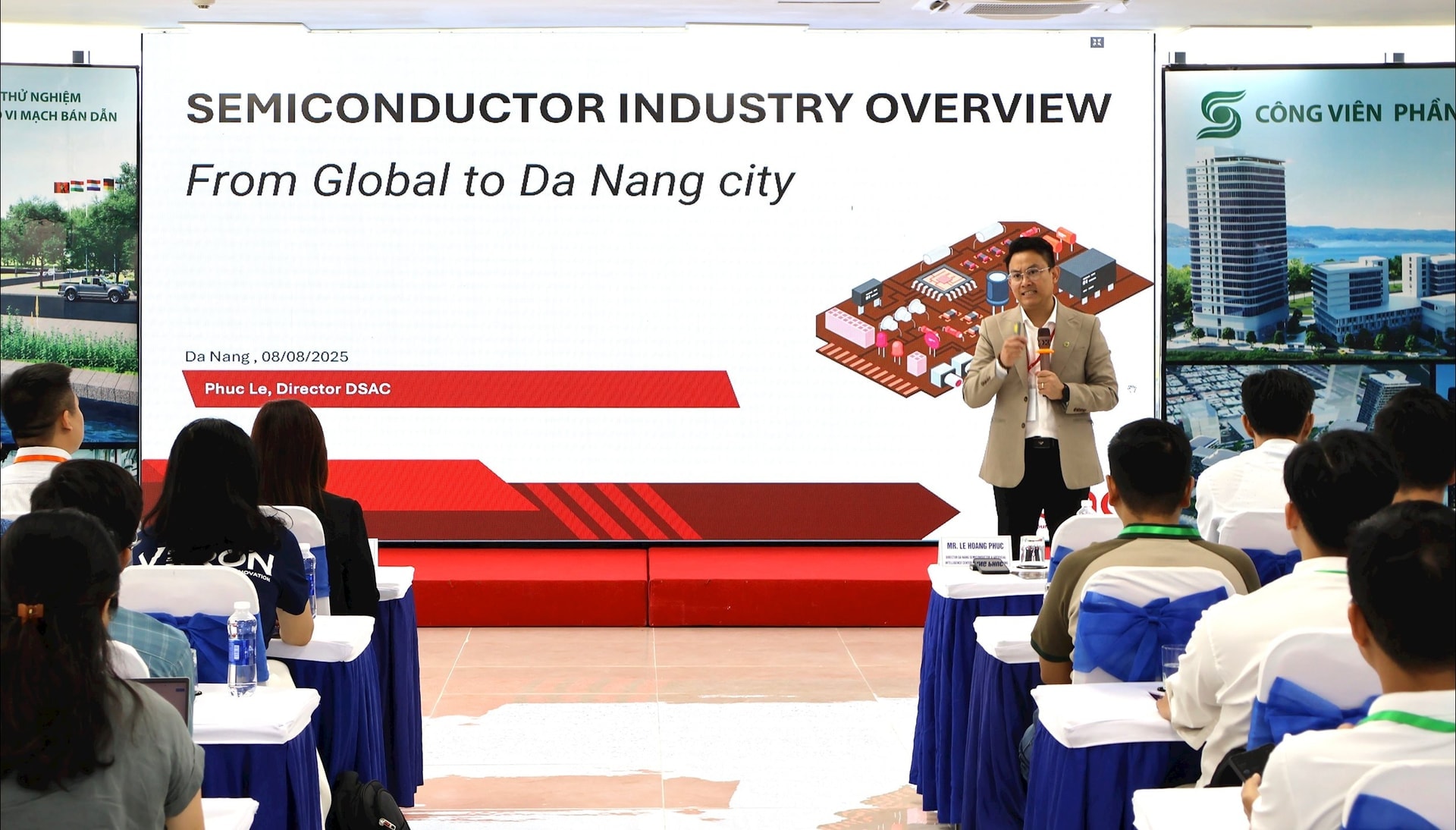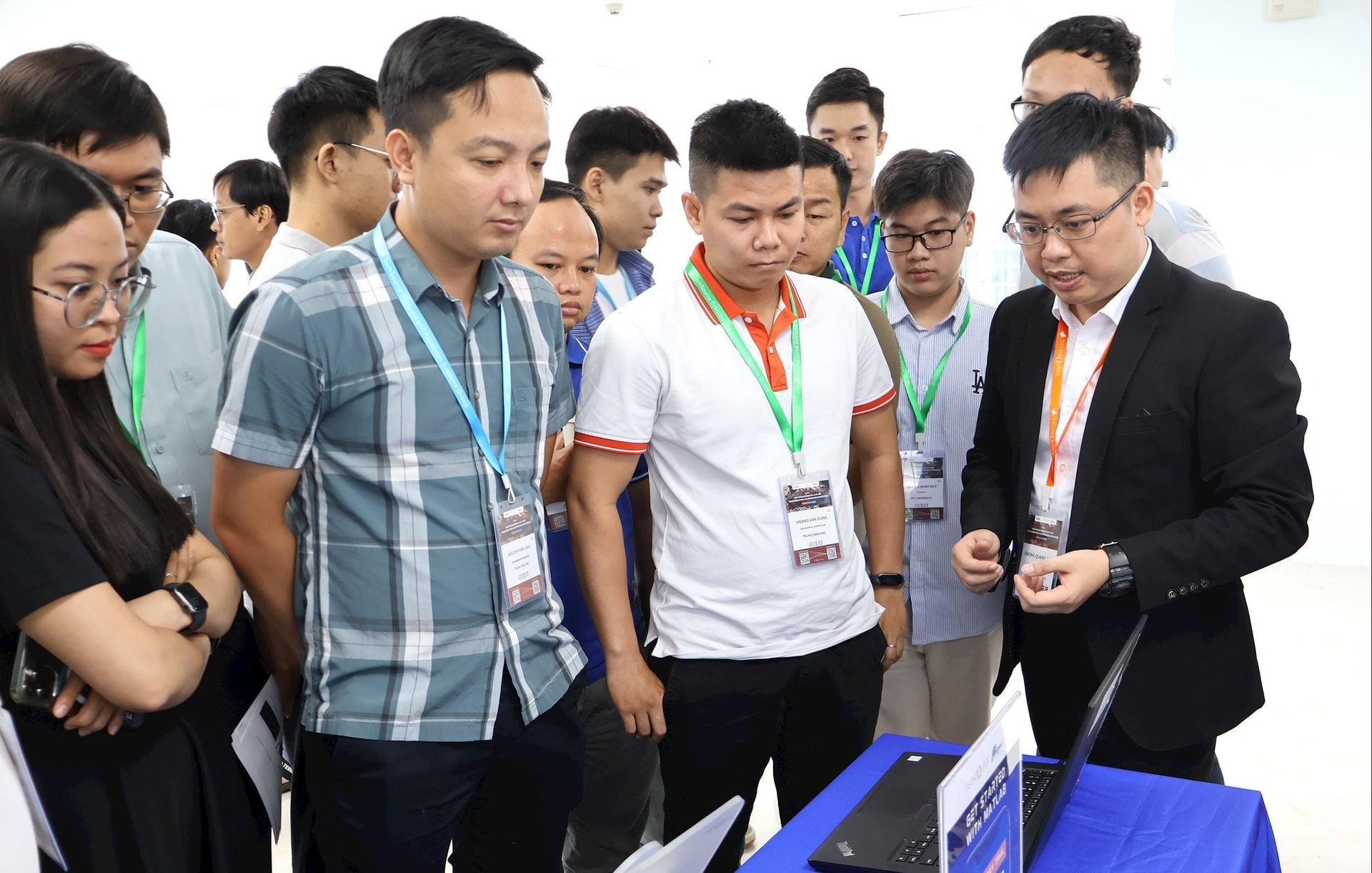DNO - AI is transforming global semiconductor and electronics industries, driving faster innovation from design to production, as experts discussed integration strategies at an August 8 seminar in Da Nang.

The seminar ‘AI Applications in Semiconductor and Electronics Industries’ was co-organised by the Da Nang Semiconductor and AI Center for Research and Training (DSAC) and Ascendas Systems Ltd.
Experts outlined three key application areas where engineers can immediately leverage AI: defect detection on production lines, sustainable AI development, and predictive fault detection before failures occur.
According to Duong Quang Huy, Application Engineer at Ascendas Systems, AI is becoming a core component in manufacturing and quality control processes in these precision-driven industries. AI systems can shorten inspection time, identify defects earlier, and reduce errors, boosting operational efficiency and cutting costs. However, challenges remain: glare, dust, or component angles can still cause misidentification, even when models achieve 99% accuracy in lab conditions. Standardizing high-quality training data, from image processing to labeling, is therefore critical.
Ha Van Ky, Business Representative of Ascendas Systems Vietnam, emphasized that specialized AI platforms can streamline image inspection workflows, handling data processing, labeling, and model deployment in real-world environments, allowing systems to proactively issue real-time fault warnings, a major step forward in predictive maintenance and quality assurance.

Global semiconductor sales reached US$179.7 billion in the second quarter of 2025, up 7.8% from the first quarter of 2025, according to the World Semiconductor Trade Statistics (WSTS). June sales of US$59.9 billion rose 19.6% year-on-year, with the Asia-Pacific region posting the strongest growth at 34.2%. Vietnam now ranks among the world’s top 10 exporters of semiconductor devices and integrated circuits, contributing about 2% of global export value.
Positioning semiconductors and AI as strategic priorities, Da Nang is investing in infrastructure, policy, and especially talent, expanding from eight to 24 semiconductor companies in just 18 months. In late July, the city launched a $70 million advanced packaging technology laboratory aimed at manufacturing, technical testing, and R&D in high-tech electronics.
“By embracing AI early, Da Nang can secure a competitive edge in the global technology supply chain,” said DSAC Director Le Hoang Phuc.